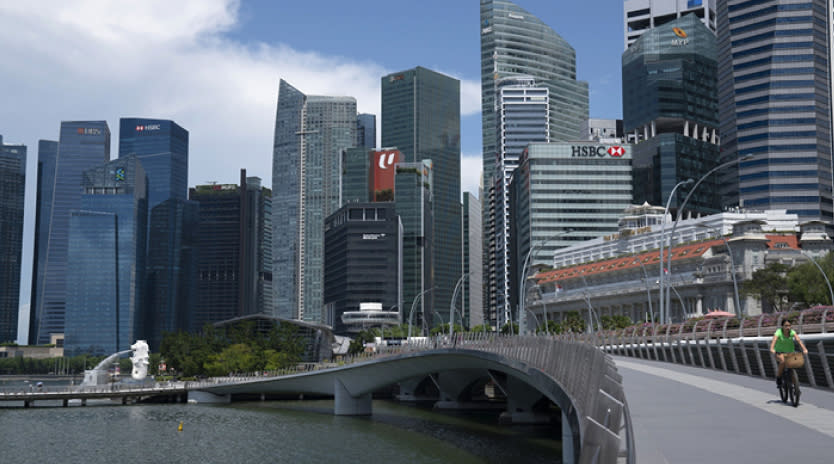Rising inflation is making it too expensive for Singaporeans to stay healthy - Cigna Healthcare report

Only 27% of the research respondents in Singapore describe their current financial situation as “good”.
The continuing cost of living crisis continues to negatively impact Singaporeans, as rising inflation is making it too expensive for the residents of the city-state to stay healthy, according to a report by health service provider Cigna Healthcare.
This is true for 64% of the respondents surveyed in the newly-released 360 Global Well-Being: Singapore Insights Report titled “Staying Well amidst the Cost-Of-Living Crisis”.
Inflation and economy is the top concern for close to half of Singapore respondents at 47% — well above the global average of 37%. The next biggest concerns are unemployment and healthcare at 14% and 12% respectively.
While the most urgent concerns amongst Singaporeans include the soaring cost of day-to-day items such as food and essentials, restaurant bills, energy, fuel and utilities, the study reveals that these concerns are stabilising — fewer respondents are expecting a cost increase for such items in the next three months compared to those who have seen an increase in the last three months.
In contrast, healthcare costs paint a different picture. Almost half of the respondents at 48% are expecting a cost increase in the next three months, while 40% saw an increase in the previous period.
The majority of respondents consider their ability to meet their own or their family’s medical needs as only “fair” (55%) or even “poor” (17%), which signifies an overall lack of confidence amongst Singaporeans when it comes to managing the rise in medical costs, Cigna Healthcare finds.
Only 27% of the respondents in Singapore describe their current financial situation as “good”, with 73% saying it is either “fair” or “poor”. Unsurprisingly, Singaporeans rated financial wellbeing as their poorest area of wellbeing, amongst other areas including family, physical, social, spiritual and workplace, according to the report.
“Inflation and the cost-of-living crisis are affecting multiple aspects of people’s lives and Singaporeans feel these effects keenly living in one of the most expensive cities in the world,” says Raymond Ng, Cigna Healthcare Singapore and Australia CEO and country manager.
“Employers need to recognise the strain on mental health that this situation is having and consider the types of support that can be made available, whether in the form of comprehensive health benefits or more empathetic workplace arrangements to help employees cope with challenges in various areas of their lives,” he adds.
The upside is most people in Singapore are actively trying to improve their health in one or more ways. For instance, 67% of survey respondents have engaged in exercises with the objective of improving their mental wellbeing. Meanwhile, 38% have changed their diet and 34% have tried meditation, yoga and other relaxation techniques.
The 360 Global Well-Being research surveyed a total of 8,800 respondents — 1,100 of whom were surveyed in Singapore. The respondents were members of the general population aged 16 to 65.
See Also:
Click here to stay updated with the Latest Business & Investment News in Singapore
MAS double tightening of upward re-centring and slope steepening 'likely' in Oct: Citi
ThaiBev, Kimly, Food Empire and Sheng Siong likely to be winners in rising inflation climate: RHB
Get in-depth insights from our expert contributors, and dive into financial and economic trends

 Yahoo Finance
Yahoo Finance 